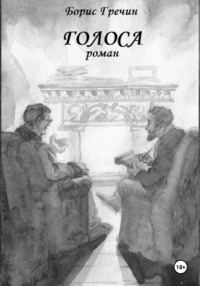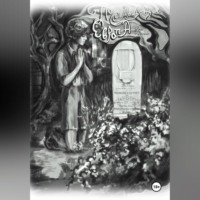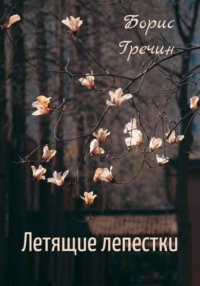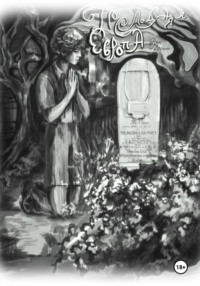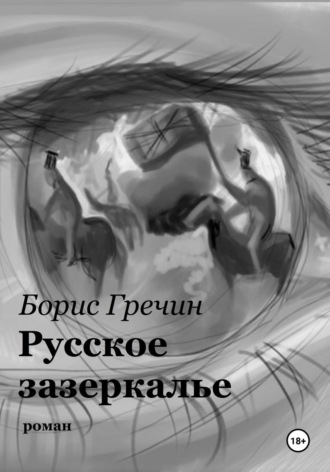
Полная версия
Русское зазеркалье
You do not feel compelled to win the hearts of teenagers as long as your income in no way depends on the sales of your new album; actually, you cannot profit from your album either: it is the Communist Party that owns your work and allows you to be active creatively. Or, more recently, you cannot make a fortune from your new album because your brand-new compositions emerge somewhere on the Russian web shortly after its official release, leaked by some copyright pirates, so why bother at all? Intellectual property is not a concept widely recongised by Russians or even by Russian official bodies, and there is something within Russian mentality that makes it almost impossible for us to ever truly recognise this concept—our deep contempt towards individualism and petty-bourgeois profit gaining, perhaps. You do not need—you do not dare, probably—to question the moral foundations of society since those very foundations are unquestionable, in the Russia of today as much as in the Soviet period. Rather than that, you can concentrate on creating songs that claim to describe ‘higher values’ or deliver to your audience some important messages about the basics of human existence. (I am painfully aware of the fact that ‘higher values’ is a pretty vague term, and so are ‘the basics of human existence.’) In other words, Russian bard and rock music of the period looks very unimpressive when seen through the lens of politics, but it becomes extraordinarily interesting as soon as you start to interpret it in terms of philosophy—or maybe religion.
This was my explanation of why you cannot be over-confident when applying conventional genre definitions to the Russian music of the period. You can take it or leave it, you also can come up with a better explanation, and you will be very welcome to do so during our discussion.
Having done with the preliminaries, let us turn to Igor Sarukhanov’s ‘Skripka-Lisa.’ The song, written in 1997, was a hit of the late 90es, and it still evokes sweet nostalgic memories in a great number of Russians.
The name of the song suggests a pun; you also may see it as a typical mondegreen. The term mondegreen was coined by Sylvia Wright, and American writer, in 1954.
They have slain the Earl O' Moray,
And laid him on the green.
Can you, too, hear it as ‘And Lady Mondegreen’ the way she did when she was a child?
The Russian [skripkalisa] can be interpreted as either ‘the screeching (Russian “skrip”) of a wheel (Russian “kolesa”),’ probably a wheel of an old traditional horse-carriage, which is the most obvious interpretation, given the next line that speaks of muddy roads, full of puddles. Or, again, the name can be read as ‘a violin’ (Russian ‘skripka’) that somehow resembles, or maybe imitates, a ‘vixen’, a she-fox (Russian ‘lisa’). At the first glance, the second reading makes no sense whatever, and yet, the official name of the song is ‘Skripka-Lisa,’ ‘A Violin [Resembling] a Fox’—or maybe it is the fox who imitates the violin, who knows… One must have a Soviet background to fully understand that—to understand, that is, why the name of the song was so absurdly distorted. Because of the aesthetic reasons, one might say: a violin sounds much better than a screeching wheel, figuratively and literally so. The fact is that Russian artists are not particularly concerned with purely aesthetic reasons as long as ‘more important issues’ are at stake.
My own interpretation is as follows: the audience is given a hint, a signal that there is an important message in store and that this message is deliberately encrypted by means of a metaphor. Who would care to encrypt it if it hasn’t been important? Various figures of speech and ‘Aesopian language’ had been the standard operating tools of those Soviet dissidents who somehow managed to get a position of, say, a film director, but who were prohibited by the Soviet censorship to directly express their social views on ‘the ugly reality of the country they lived in.’ An instant rapport between the artist and his or her audience was established every time any such metaphor emerged. ‘Now, listen!’ those metaphors said. ‘Here comes someone who can reveal the truth. Pay attention!’
After 1991, the situation changed drastically. In the ‘New Russia,’ you wouldn’t need any sort of the metaphorical language any longer. You could criticise the social reality at your heart’s content—nobody cared, just because nobody really listened to. You don’t really pay attention to social critics when you have more urgent issues to take care of—your own survival, for instance. ‘Freedom of speech’ it was all right, but, allow me to say, a very starving sort of freedom. Why would Igor Sarukhanov still use those ‘disguising metaphors’ in 1997 when it was completely safe to say the truth in plain words, namely, that the wheels of the carriage we call ‘the Russian state’ are old and screeching? Everyone who had eyes could directly observe that simple fact. A great question. Please note it as one of the questions for our discussion. Allow be to give you a hint, though. Those of you who are familiar with The Demons by Fyodor Dostoyevsky might remember the figure of Stepan Verkhovensky, a political radical in his youth, a conformist in his fifties, who, when being left completely undisturbed and long forgotten by the authorities of the province he lived in, still proudly posed himself as a person ‘under secret surveillance.’ I guess Igor Sarukhanov wouldn’t be overly happy about my comparing him to Stepan Verkhovensky. Why? We might want to discuss this question, too.
The subject of the song is in all probability a troupe of wandering circus artists who tour to different venues—along the dirty roads with puddles, accompanied by the screeching of the wheel. Or maybe by the song of a fox-like violin, or by howls of a violin-like fox even. Do they also have a fox that performs simple tricks on the circus stage? The first verse mentions another ‘wounded animal’ (or is it the same?) who ‘wants to escape in the fields’ and ‘has no shelter.’ This wounded animal is our love, the song says. It looks like there are two persons in the artistic troupe who, when loving each other, obviously feel very unprotected. Why do they? Because of their being a same-sex couple whose relationship is not looked upon favourably even among the circus artists with their liberal views? I leave it to your own interpretation.
The question is of course provocative: your humble lecturer doesn’t see it that simple. Igor Sarukhanov probably addresses his audience each time he says ‘you,’ ‘our love’ can therefore be easily interpreted as ‘our love for our country,’ our patriotism, a feeling that is ‘shy,’ ‘wants to escape into the fields’ and ‘has no shelter.’ You had to physically be in Russia in her 90es to feel why patriotism in Russia could—and still can, probably—be spoken about in such categories.
Let us now have a look at the second verse. ‘For thousands of years we, you and I equally, are doomed to…’ To “mykat’ ”, which verb leaves me almost helpless, Russian though as I am. The closest possible translation would be I guess ‘to suffer from’ and ‘to get along with,’ ‘to patiently endure something,’ ‘to suffer from something while you are getting along with it.’ A very Russian vision—I might even say, a very Orthodox Christian vision—of suffering which is ‘beneficial in itself’ (well, not really), as it allegedly ‘purifies our soul from Evil.’ I wholeheartedly reject this vision, which doesn’t mean to say that my rejection of it is in any way exemplary for a Russian—I might be a bad Russian, after all. This is what the Russian songs that we discuss in this course are about. Just touch any of them—and you will be overwhelmed, overflowed by the multitude of cultural phenomena it refers to, including Dostoyevsky, a thousand years of Russian Christianity, and God knows what else.
We are, the text says, doomed to maintain this half-friend-half-foe relationship with ‘something in our destiny,’ still left untouched ‘by the malicious ravens.’ Black ravens play an important part in Russian pre-Christian mythology; they usually symbolise Death. The song probably says that those of us who will be still alive will envy the dead. A very dismal vision of Russian life as a purgatorium, shared only by relatively few artists. I do not subscribe to it, and yet I felt like it wouldn’t be very fair not to mention those artists in our course altogether. It is the second part of the verse, though, that makes the whole of it so remarkable.
For thousands of years we are doomed to be waiting for the Driver, and then
We who have hearts of the rich but carry beggar’s bags will flop down in the mud, when [he] yells at us, ‘Go down!’
The Driver definitely must be seen as the Vozhd, the National leader, the Tsar. To be honest, I would not know what to say if you asked me where the line between a vozhd and a tsar should be drawn. To me, all these terms are synonymous, de facto if not de jure. Russia has always been, and still is, an authoritarian state. (This is what you wanted me to say, didn’t you?) To ignore this fact of our social reality would be absurd, and yet, your humble lecturer and Igor Sarukhanov happen to have diametrically opposed views on whether having a monarch is beneficial or bad for a nation. Any admirer of the British royal family would perhaps be on my side… We are not talking about my humble person, though. For Igor Sarukhanov, the Driver cannot help being a tyrant and a dictator, one who shouts at you ‘Go down!’—and then you bluntly fall in the mud, a rich man in your heart though you are. You probably remember Boris Berezovsky and the sad end of his life: he, too, had to obey this command and to ‘go down,’ speaking metaphorically. In Russia, you cannot contradict the Driver, however rich you are.
My subjective opinion is that Sarukhanov’s characters with their ‘hearts of the rich’ can hardly earn sympathies of an average Russian. It is the ‘poor and condemned,’ to use Dostoyevsky’s phrase, who win our hearts. We are not really sorry for the rich, thrown in the mud. Would the artist attribute ‘hearts of saints’ to his protagonists he undoubtedly would make us love them. The problem is, saints are not upset by the command to go down. This is what they are doing all the time, anyway. It reminds me of a short talk between the Russian Tsar and Bazil the Blessed, fool for Christ, in Boris Godunov, Modest Mussorgsky’s famous opera. Why does the beggar reject monarch’s humble request to pray for the salvation of tsar’s soul? Another question that we might want to discuss later on.
The whole of the second verse can basically be seen—or, rather, heard—as the voice of the Russian liberal intelligentsia, moaning about the fact that the ‘only civilised people in this wild country’ (sarcasm on my side) are forced to ‘go down’ by the Driver, be this Driver Nicholas I, Joseph Stalin, or Vladimir Putin. The pro-Western liberal intelligentsia in Russia will be lamenting until the second arrival of Christ. If Christ Himself asked those people to follow Him, to join Him in the Heavenly Kingdom, and to please leave behind all their petty thoughts and bad mental habits, this being the only condition for their rise—they would still say the strict Driver had forced them to go down. Does it sound too ecclesiastical? I cannot help it.
There are two things that reconcile me with this song, though, one of them being sweet memories of my adolescence. All these songs—along with some understanding of them—have been ‘transmitted’ to me by one of my teachers, a person of whom I think very highly, so they cannot be really bad, however sentimental it may sound. The second reason is the third verse of ‘Skripka-Lisa’ that asks us to
[g]et to the very bottom, come what may; let Sorrow and Darkness haunt you.
We have only one life, and we ought to remember that the ditch [into which we can fall] is pretty close.
This, finally, is very Russian. An average member of the pro-European liberal intelligentsia wouldn’t really try to get to the very bottom of things; he or she wouldn’t bravely face Sorrow and Darkness haunting him or her. Neither would he or she be very much concerned with whether he or she ends up in the ditch of evil thoughts and deeds or not. ‘It takes a man to suffer ignorance and smile,’ according to Gordon Sumner commonly known as Sting. It takes being Russian to embrace what you cannot escape from; it takes being Russian to know the depths of one’s own depravity and not to fall into them. It also takes being Russian to actually fall into the ditch of your depravity, to get to the very bottom of it, and to morally resurrect.
Your questions are most welcome.11
~
[Сноска дальше.]
– You do look so very Alice-in-Wonderland, dear! – шестидесятилетняя женщина за столом директора в бледно-жёлтой блузке с V-образным вырезом осветилась улыбкой. Наверняка она имела в виду мою причёску и волосы до плеч, и ещё мою длинную юбку до середины голени, и белую блузку, вот это вот всё; кстати, лет десять назад я чёлки не носила. Да и два года назад: что я только не выделывала со своими волосами два года назад… Я невольно коснулась волос, тоже улыбаясь:
– You see, Mrs Walking, I am old enough to stop experimenting with my hair… It’s Mrs Walking, isn’t it?
Миссиc Уолкинг кивнула, подтверждая, что это именно она и есть. Через её cтол мы пожали друг другу руки, верней, просто соединили их и слегка встряхнули, как тут и принято пожимать руки.
– Pray take your seat, – предложила директор. Она мне явно нравилась, и не только своей приветливостью. – You were quite a success today, do you know that? I was impressed, too. You know, I was just passing by the door, when I caught some words of your lecture, so I stopped for a minute—you don’t mind my involuntary eavesdropping, do you? – Я прикусила губу, удерживая улыбку. Eavesdropping, положим, наверняка было не такое уж involuntary, но пусть: я бы то же самое сделала. Может быть, у них микрофон установлен в каждом классе, так что вовсе и не надо стоять под дверью, достаточно нажать на кнопку. – Did you like your group?
– I did, – ответила я: в конце концов, это было наполовину правдой. – I am only sorry we never went so far as to actually discuss the song. They attacked me with all sorts of general questions about Russia and personal questions about myself.
– What did they ask you, for instance?
– Things like… how does it feel to live here, and whether I really am a monarchist, or whether I really am Russian, the whole thing being probably just a hoax, an artistic performance of some sort, or whether there might be some reasons why I am afraid to criticise the Russian president even here, considering the Skripal case, or why I disagreed with the artist when he was just saying the truth, namely, that Russian life is hell, or whether I was serious when talking about Christ wishing to rise the Russian intelligentsia to Heavenly Kingdom or just meant it as a figure of speech, and whether I really am an Orthodox Christian believer…
– And are you?
– I have never thought of myself in these terms, but the moment they asked me that question, I clearly and very distinctly saw that I am—not perhaps as a regular church-goer, but ideologically so, – призналась я неожиданно для самой себя, осознавая то, что говорю, в тот самый момент, когда проговаривала. – One must have a safe place within one’s mind in order to stand against… erm…
– The atrocities of this world? – нашла директор меткое выражение. Какая умная женщина, правда!
– Yes, exactly! As for my course, I think it is almost impossible to bridge the gap between the two cultures in question: I actually had a feeling I was speaking Mandarin Chinese, not English.
– Your English is very good, and as for this gap, the task is in itself very challenging, – сгладила директор острый угол, отнюдь не желая пускаться в рассуждения о том, что строительство мостов между культурами – задача вообще почти невозможная, а вовсе не только challenging. Тысячелетняя культура избегания неудобных для вежливого разговора глубин: нам этому у них столько же лет учиться. – It was a very lucky phrase of yours when you said that touching on any of your songs inevitably results in dealing with Leo Tolstoy, five hundred years of Russian serfdom, and God knows what else. All in all, you are a very bright lady… ‘young lady,’ I was on the verge to say, but—how is it that you are only twenty seven—or eight?—and sound so very much older? Forgive me this utterly tactless question, Alice, dear—do you mind my calling you by your Christian name?
– Not at all, Mrs Walking! («А себя-то, между прочим, не предложила называть по имени! – тут же смекнула я. – Как они тут умело выстраивают вертикаль “начальник-подчинённый”! Мягкой поступью, так что и не заметишь…») It’s not tactless, and the answer is…
– That you are Russian, – закончила она за меня. – I suppose this mykat’ of yours that you mentioned today is the central concept of your national identity. Well, our girls must seem juvenile to you… Allow me to give you a warning, though, will you? Be alert with them, never relax! Take them seriously, adolescent as they seem to you or perhaps as they also really are! It is nonentities who get very offended if someone says to them that they are nonentities. You have only eight or nine lectures ahead of you, so nothing very bad will probably happen—and yet, and yet… You are young, you are proud, you are admirably adamant in your principles—so be careful! For the time being, I will inform Sir Gilbert about your brilliant start—do you know that he comes the day after tomorrow, by the way? And now, one thing more: do you mind if we go over the text of your first lecture and look at all the inaccuracies? I mean, not really inaccuracies, just some unlucky phrases…
Я послушно кивнула. Следующие минут десять мы посвятили тексту моей лекции. Это было доброжелательно и очень профессионально – настолько доброжелательно, настолько профессионально, настолько отстранённо, что я даже не почувствовала раздражения по поводу того, что посторонний человек учит меня, как говорить. Вопрос «как говорить» – очень сложный, потому что рано или поздно он неизбежно в себя вовлекает «о чём говорить», и никто не знает, где кончается одно и начинается другое. Миссис Уолкинг, кажется, поймала мою мысль (так бывает, что люди, сосредоточенные на одном деле, перебрасываются мыслями, замечала не раз), потому что в конце этой работы над ошибками призналась:
– You know what? It feels like I am trying to make you less Russian than you are—cui bono? I am forcing you into the British way of thinking—a bad thing to do, given the subject of your lectures.
– On the contrary, your remarks are very valuable, – мягко запротестовала я. – Especially those on the use of articles and…
Директор неопределённо хмыкнула:
– Articles, yes, but… We teachers have an in-born vision of speech as something that should be immaculate, whereas the real human speech is not about avoiding mistakes. Neither is art, and neither is life.
– I like very much what you say, because you sound very much like my teacher of English I had in form eleven, – призналась я.
– So nice of you to remember your teacher—what a good kid you are… – с теплотой откликнулась директор. – You know, I used to have a daughter of your age…
– So she… passed away? – уточнила я негромко, сочувственно. Миссис Уолкинг кивнула.
– And he died, too, – сказала я деревянным голосом, глядя в окно поверх её плеча. – I received a letter the day before yesterday.12
Мы обе помолчали секунд десять. После директор, вздохнув, решительно пододвинула к себе папку с документами, вымученно улыбнулась, и до меня вдруг дошло, проняло до самых пят: их вымученные улыбки – не лицемерие, не только лицемерие. Это – стоицизм перед лицом жизни.
Ещё минут семь мы посвятили моим документам и другим рабочим вопросам. Утрясли, в частности, моё расписание: мне ставили три лекции в неделю на протяжении месяца, точнее, трёх недель с небольшим. Прекрасное расписание, мечта любого педагога. (Всего на мой курс выделялось двадцать академических часов, из которых, однако, два последних следовало отдать на итоговый тест или иную форму итогового контроля.) Договорились о том, что вопросы к семинарской части я буду давать студентам заранее, верней, присылать помощнице директора на её электронную почту, а та уже будет вешать их на доску объявлений. Продление моей рабочей визы переставало быть мечтой и становилось реальностью – что самое приятное, при достаточно небольших дальнейших усилиях с моей стороны. Сэр Гилберт наверняка приложил к этому руку, только вот какой его в этом интерес? Неужели и в самом деле – чистый, почти не бывающий в наше время случай благотворительности? Я уже почти открыла рот, чтобы задать миссис Уолкинг этот вопрос, таким славным человеком она казалась. Не задала, конечно: я всё-таки прожила здесь три года, чтобы понимать, что и когда можно спрашивать, а что нет. О, ещё года два назад я бы ей доверилась безоглядно, особенно после этого воспоминания о дочери, этой нашей общей минуты искренности! Но любые слова – только слова, и даже самые хорошие и милые люди оказываются ненадёжными, в итоге – опасными, и это всё порой совсем не перечёркивает их хороших качеств. Нет, я и в самом деле как-то успела стать very much older13 паспортного возраста, это она верно заметила.
Ещё несколькими любезностями мы обменялись, пора было и честь знать, когда миссис Уолкинг вызвала свою молоденькую личную помощницу по имени Аня, верней, Anya (это именно она встретила меня рано утром) и попросила разыскать Патрика, одного из девяти студентов, записавшихся на мой спецкурс. Этот парнишка уже успел запомниться мне тем, что на последней фразе моей лекции встал и вышел из аудитории, таким образом благополучно миновав обсуждения. Побрезговал, что ли, или чем-то ранила я его нежную душу? (Another sarcasm on my side.)14 Патрика привели, и миссис Уолкинг, сама благожелательность, попросила студента своего колледжа проводить мисс Флоренски домой. А то, дескать (это мне), ещё заплутаете, душенька. Удивились и Аня, и Патрик, и я, я – больше всех: это было не совсем по-английски, точней, не очень в духе 2019 года. Для времён Диккенса – ещё куда ни шло, а для конца десятых годов XXI века, с нашим-то культом индивидуализма и приватности, – почти что грубость и самоуправство. Или директор гордилась тем, что вот, может тоже позволить себе пренебречь суетой современности, а не только я, со своей вызывающе-викторианской причёской, длинной клетчатой юбкой и русским православием, слала жест привета от одного анахронизма другому анахронизму? Или хвасталась тем, как все её слушаются, попутно намекая, что и мне следует? Или желала ко мне приставить соглядатая? Или просто делала ещё один жест вежливости? Или искренне за меня беспокоилась? Как сложно с ними…
Парнишка, похоже, был не очень рад просьбе – я, видя это, конечно, начала отнекиваться. Миссис Уолкинг со своей благожелательной любезностью была, однако, непреклонна, поэтому я не стала упрямиться: я пожила в этой стране – или просто на белом свете – достаточно, чтобы понять: не надо сопротивляться, когда другой человек хочет сделать тебе приятное, если ни ему, ни тебе это ничего не стóит.
Что ж, мы вышли из здания колледжа и зашагали рядом, странная парочка, баран да ярочка. Меня ситуация, конечно, забавляла, а вот Патрика нет: он был очень напряжён. Мы уже дошли до того места, где Adelaide Road соединяется с Haverstock Hill, а он так и не сказал ни слова. Я искоса поглядывала на него: высокий парень, худой, кудрявый, но без намёка на восточную кровь, чисто британской кудрявостью. В очках, с умным, породистым лицом: неглупый, видимо, парнишка. Почему только он так демонстративно вышел? Впрочем, тоже не свидетельство глупости: только своенравия. Патрик изо всех сил пытался не глядеть на меня, но при этом оставаться вежливым. Наблюдать это было смешно: я долго молчала, и, наконец, не выдержав, c улыбкой обратилась к нему:



